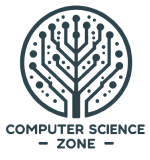 The future looks bright for highly qualified computer science professionals. Computing jobs are in high demand, offer flexible employment options and command excellent salaries. As technology continues to play a growing role in every field of business, computer science experts are able to find successful and satisfying employment across a range of industries, from healthcare to education, government to entertainment. The Bureau of Labor and Statistics places computer scientists among the ten fastest-growing occupational groups, and this job market is expected to increase by 27% by 2022. This high demand means competitive salaries for computer science experts. A recent ranking by Business Insider of the “hottest tech jobs” found that 13 of the 15 were in the field of computer science. Professionals holding a master’s degree in computer science have a definite edge over other candidates for these lucrative, flexible and in-demand positions. Forbes names a master’s degree in computer science among the “top degrees for job marketability”, and those with a master’s degree in the field can expect to earn 38% more than those with a bachelor’s alone.
The future looks bright for highly qualified computer science professionals. Computing jobs are in high demand, offer flexible employment options and command excellent salaries. As technology continues to play a growing role in every field of business, computer science experts are able to find successful and satisfying employment across a range of industries, from healthcare to education, government to entertainment. The Bureau of Labor and Statistics places computer scientists among the ten fastest-growing occupational groups, and this job market is expected to increase by 27% by 2022. This high demand means competitive salaries for computer science experts. A recent ranking by Business Insider of the “hottest tech jobs” found that 13 of the 15 were in the field of computer science. Professionals holding a master’s degree in computer science have a definite edge over other candidates for these lucrative, flexible and in-demand positions. Forbes names a master’s degree in computer science among the “top degrees for job marketability”, and those with a master’s degree in the field can expect to earn 38% more than those with a bachelor’s alone.
Candidates seeking a master’s degree in computer science have a variety of options in higher education, and none are more flexible, accessible and cost-effective than pursuing an online degree through an accredited university. Virtual classrooms come in every conceivable format, from self-paced, competency-based coursework completed independently, to scheduled classes live-streamed from on-campus lectures. With its focus on computing, interface and technical problem-solving, computer science is a natural fit for the online learning environment. Distance learners can even access resources like virtual labs and cyber attack simulations, and participate remotely in collaborative programming challenges and tech industry internships.
Our list of the 20 Best Online Master’s Degrees in Computer Science represents a selection of the strongest programs available, the best of the best, ranked for affordability, flexibility and academic prestige. We considered over 300 schools offering online degrees, then narrowed our selection down to 100 offering a truly online university experience, with a selection of ten or more degrees.
Best Online Master’s Degrees in Computer Science Methodology
- Affordability (1/3): cost per credit hour, out-of-state tuition (if applicable)
- Specializations (1/3): the number of concentrations or specializations available within the degree program
- Academic Rigor and Support (1/3): the strength and reputation of the online program’s parent institution (if applicable)
1.) Georgia Institute of Technology

The Georgia Institute of Technology (commonly referred to as Georgia Tech) is a public research university based in Atlanta, Georgia, with satellite campuses in Savannah, Georgia; France, Ireland, China and Singapore. The school was founded in 1885 and is home to just over 25,000 students. Originally established during Reconstruction as a mechanical engineering school, Georgia Tech is now comprised of six colleges, containing 31 departments, with an emphasis on science and technology. With its selective admissions and high research activity, the school enjoys an outstanding reputation. U.S. News and World Report ranks Georgia Tech 34th in National Universities, 7th in Top Public Schools and 7th in Most Innovative Schools. Business Insider also ranked Georgia Tech as the single “smartest” public college in the nation based on average standardized test scores.
The online master’s degree in computer science at Georgia Institute of Technology enjoys the same outstanding reputation as the university as a whole. U.S. News and World Report ranks the online master’s degree program 9th in the nation, and within this discipline, places it 6th in the nation for both Artificial Intelligence and Systems, 8th for Theory and 13th for Programming Language. Developed as a collaboration between Udacity, AT&T and the university itself, the program is the first-ever professional online master’s degree in computer science that can be earned entirely through a large-scale online format based on the model of “massive online open content” courses (or “MOOCs”). By allowing thousands of students to participate in lecture-based online classes, the school is able to reduce the cost of tuition to a mere $170 per credit hour, a small fraction of the price of credits at comparable institutions. One drawback of traditional MOOCs is low student retention and limited interaction between the student and peers or instructors. However, Georgia Tech’s program includes collaborative and interactive learning components, and provides student mentoring to keep virtual classroom engagement high. The program consists of 30 credit hours, distributed across ten courses, and can be completed in two years. Four specializations are offered: computational perception and robotics, computing systems, interactive intelligence and machine learning. The school provides academic advising to help online students design and manage their course of study.
- Homepage
- Number of Specializations: 4
- Estimated Tuition Per Credit Hour: $170
2.) Sofia University

Sofia University was founded in 1975 as a private university for the study of transpersonal psychology, a whole-person system of understanding the human experience. The school is based in Palo Alto, California, in the center of tech-heavy Silicon Valley. Accordingly, the university has recently broadened its focus to include studies in computer science, such as artificial intelligence, human computer interaction, big data and software design, with the goal of applying transpersonal principles to practical technological issues. In 2015, Sofia designated four schools of study within the university: the institute of transpersonal psychology, the school of business and leadership, the school of technology and engineering, and the school of transformative education. Fifteen degree programs are available, including undergraduate, graduate and doctoral programs, along with numerous certificates. As a transpersonally-oriented institution, Sofia University emphasizes six areas of inquiry in all disciplines: intellectual, emotional, spiritual, physical, social, and creative, and aims to guide students in developing a deep and holistic understanding of their chosen field.
The online master’s degree program in computer science at Sofia University emphasizes the acquisition of technological skills with humanistic values. A remarkably high number of optional specializations are offered, nine in all, including artificial intelligence and machine learning, human-computer interaction, transformative computing, drone technology and wearable/mobile application development. The program takes between one to two years to complete, and is largely comprised of electives. At least one elective in transpersonal psychology is required, with the goal of balancing students’ technological expertise with leadership and interpersonal skills. Tuition is moderately priced at $750 per credit.
- Homepage
- Number of Specializations: 9
- Estimated Tuition Per Credit Hour: $750
3.) City University of Seattle

City University of Seattle, also called CityU, is a private, not-for-profit institution, which was founded in 1973 in order to educate working adults. CityU is comprised of three schools, the School of Management, the School of Arts and Sciences, and the Albright School of Education. The school serves about 6,700 students through campuses in Washington and Hawaii, and 26 locations abroad, including far-flung locations such as Slovakia and China. Most degree programs are also available through distance learning. Practical, student-centered education is emphasized, and the school offers a wide selection of certificates, associate’s, bachelor’s, master’s and doctoral programs. As a university created with working adults in mind, CityU emphasizes flexibility in all areas of learning. The school offers rolling admissions, hybrid online/on-site programs and academic credit for professional experience and knowledge demonstrated in assessments. CityU also emphasizes real-world application of coursework; courses are taught by practitioners in their field of expertise and emphasize practical workplace application over theory. Popular areas of study include business, accounting, computer systems, communications, education, psychology and counseling.
The online master’s in computer science program at CityU is comprised of 39 credit hours (59 for those lacking an undergraduate degree in an IT-related field) and typically takes two years to complete. The cost of tuition is $678 per credit hour. The program features a rigorous core, including topics such as Computer Architecture, Software Engineering and Information Security. Students can augment this core with one of seven specializations: Programming, Technology Management, Development Management, Cloud Development, Data Management, Gaming or Embedded Systems. As in on-campus classes, students are taught by accomplished computer science practitioners, who bring their real-world expertise to the virtual classroom. Each online student is paired with a student success advisor, who provides support and assistance from the start of the program until graduation. Virtual tutoring, writing assistance, career placement services and a digital library are also available to online students.
- Homepage
- Number of Specializations: 7
- Estimated Tuition Per Credit Hour: $347
4.) Colorado State University

Colorado State University (also called simply Colorado State) is a public research university located in Fort Collins, Colorado, and is the flagship university of the Colorado State University System. The school was founded in 1870 as an agricultural college, and the institution actually predates the state itself, having been established in the Colorado Territory. Colorado State is large and growing; current enrollment stands at 32,236, and the school plans to have 35,000 students by 2020. For a school of this size, Colorado State maintains a relatively low student to faculty ratio, at 17 to one. The school is comprised of eight colleges and 55 academic departments. Bachelor’s degrees are offered in 65 areas of study, master’s degrees in 55 fields, doctoral degrees in 40 fields of study, in addition to a highly-regarded professional degree in veterinary medicine. Colorado State is considered one of the nation’s leading research universities, and has contributed to developments in addressing real-world problems such as climate change, infectious diseases, bio-terrorism, and clean energy. The school provides students with ample opportunities to engage in learning outside the classroom through internships, field experience, laboratory research, and study abroad. U.S. News and World Report ranks Colorado State 129th in National Universities and 61st in Top Public Schools.
Students in the online master’s degree program in computer science at Colorado State University benefit from the same prestigious academic resources as on-campus students, including the same accomplished faculty and the opportunity to participate in cutting-edge research. The program is well-regarded, and was recently ranked 18th in the nation by CollegeChoice. Distance learners view the same lectures as their on-campus peers via streaming and archived video, as well as video recorded in the field. Interaction and collaboration are encouraged through occasional synchronous sessions, involving scheduled live interfaces between students and their professors or peers. Text-based work is incorporated as well, along with audio content delivered through podcasts, resulting in a rich learning environment. The program consists of 35 credit hours, moderately priced at $675 per credit, and can be completed in two years. A master’s degree in computer science from Colorado State holds promise for real-world career advancement. Approximately 70% of program graduates have job offers upon graduation, and are frequently recruited by major tech, software, and aerospace companies, like Microsoft, IBM, Hewlett-Packard and Intel.
- Homepage
- Number of Specializations: 1
- Estimated Tuition Per Credit Hour: $675
5) Missouri University of Science and Technology

Founded in 1870, The Missouri University of Science and Technology has just under 9,000 students. Ranked highly by both USA Today and US News (as a top public university), Missouri S&T offers excellent online programs, including four in the top 50 nationally. The university’s student-to-faculty ratio is 19:1, and over 30% of classes have less than 20 students. By utilizing he Canvas learning platform, MUST encourages engaging, collaborative education.
Missouri S&T’s online MS in Computer Science consists of 31 credits, including courses such as Introduction To Artificial Intelligence, Interactive Computer Graphics, Security Operations & Program Management, Cloud Computing and Big Data Management, Clustering Algorithms, and Intellectual Property For Computer Scientists, among others. For students interested in tailor the degree to areas of professional interest, emphases are available in Critical Infrastructure Protection and Software Engineering, and a thesis option is also available. Related graduate certificates include Big Data Management and Analytics, Computational Intelligence, Cyber Security, Information Assurance & Security Officer Essentials, and Systems and Software Architecture. The average time of completion is two years.
- Homepage
- Tuition Per Credit: $1,200
6.) University of Massachuessets Dartmouth

University of Massachusetts- Dartmouth (also known as UMass Dartmouth) is a public university based in Dartmouth, Massachusetts. The school was founded in 1895 and is one of five subdivisions of the University of Massachusetts. UMass Dartmouth is home to the School of Marine Sciences and Technology, the College of Visual and Performing Arts based in historic New Bedford, and the UMass School of Law. Total enrollment is 8,916, and students can choose among 85 undergraduate, graduate and law degree programs. The school was originally founded as a textile school, and continues to be recognized for its departments of textiles, arts and design, while also offering well-ranked programs in areas such as business and engineering. UMass Dartmouth is ranked by U.S. News and World Report as 220th in National Universities and 125th in Top Public Schools. The school has also been ranked in the top 20 nationally by the President’s Higher Education Community Service Honor Roll for its civic engagement for four consecutive years, and was the first university in the world to earn an A+ for sustainability from the Global Reporting Initiative.
The master’s degree in computer science at the University of Massachusetts at Dartmouth provides a broad and rich curriculum, with an emphasis on software development. Within the program, there is considerable room for students to personalize their course of study. Before beginning their studies, each student plans out their individual graduate program with an academic advisor based on their goals and interests. Students choose three core courses from a selection of four, complete a master’s project course, and select six additional computer science electives. Of these electives, one can be an internship or an optional master’s thesis, and several electives can be chosen from other technical departments outside of computer science, with the approval of the Graduate Curriculum Committee. A total of 30 credits are required for graduation. Classes prepare students with a comprehensive combination of oral and written work, group and individual assignments, research and problem-solving. The online master’s program in computer science at UMass Dartmouth was ranked in the nation’s top 20 by Computer Science Online. With tuition priced at just $537 per credit, this program represents an exceptional combination of academic quality, flexibility and affordable price.
- Homepage
- Number of Specializations: 1
- Estimated Tuition Per Credit Hour: $537
7) National University
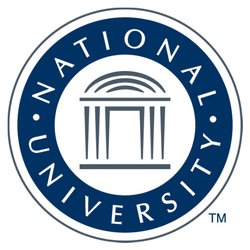
Founded in 1971, National University is the second-largest private, nonprofit school in California and a leader in online education, with over twenty years of experience and at least five online programs ranked among the best in the country by US News. Founded by veterans, NU is a Yellow Ribbon school, offering the post 9/11 GI Bill and a veteran center. Students come from all 50 states and 65 countries worldwide.
National’s online MS in Computer Science that consists of 12 courses (54 quarter credits). Core requirements include Software Engineering Fundamentals, Software Architecture Principles, Web and Cloud Computing, Modern Operating Systems, Security in Computing, Database Design and Implementation, and two projects. From there, students can tailor the degree to areas of professional interest through specializations in either Advanced Computing, Database Engineering, and Software Engineering. All courses are designed for maximum flexibility to accommodate students’ schedules, and NU’s transfer policy allows up to 13.5 quarter units to be waived. Upon completion of the program, students will be able to: create software requirements specifications; design and develop complex software systems; evaluate computer security issues; and analyze, design and develop database solutions, among other critical tasks.
- Homepage
- Tuition Per Credit: $416
8) Illinois Institute of Technology


Founded in 1890, Illinois Institute of Technology has a total enrollment of 7,700, the majority of which consists of graduate students. US News ranks Illinois Tech among the best universities in the country and in the top 40 for best value. With an emphasis on hands-on learning and research opportunities, graduates have gone on to work at some of the most successful engineering and technology companies in the world. (Notable alumni include Victor Tsao, founder of Linksys, and James Roche, former secretary of the Air Force.) The 13:1 student-to-faculty ratio supports a combination of intimate courses with individualized instruction; over half of classes have fewer than 20 students.
Illinois Tech’s online Master of Computer Science is a 30-33 credit program designed for both current CS professionals and students with CS academic experience who want to pursue a career in the field. In addition to a rigorous core curriculum, ITT offers 8 CS specializations: Computational Intelligence, Cyber-Physical Systems, Data Analytics, Database Systems, Distributed and Cloud Computing, Information Security and Assurance, Networking and Communications, and Software Engineering. Business or Finance specializations are also available for an additional 3 credits. Students typically complete the degree in 2 years, and online courses are designed for maximum flexibility.
- Homepage
- Tuition Per Credit: $1,530
9.) University of Illinois at Springfield
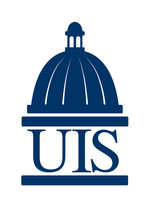
University of Illinois-Springfield is a public liberal arts university that founded in 1969, and is located in the state capitol of Springfield, Illinois. The school serves roughly 5,700 students in 27 undergraduate degree programs, 20 master’s degree programs, and a single doctorate degree program. Robust academics distinguish this university; the school emphasizes undergraduate research, maintains a small student-faculty ratio of 14 to one, and offers a wide array of internships and opportunities to engage in the local community and state government. University of Illinois- Springfield is ranked 63rd in Regional Universities Midwest by U.S. News and World Report and 13th in the nation in Top Public Schools.
The University of Illinois-Springfield is widely recognized for its outstanding online education, and the school’s online computer science department has also earned multiple awards, particularly in the area of cybersecurity, including recognition for excellence by the National Security Agency and the Department of Homeland Security. The online master’s program in computer science boasts an outstanding combination of flexibility, high-quality academics and low cost. The program is oriented towards design, analysis, and implementation of software programs. A total of 8 courses are required, consisting of 32 credits. At just $362 per credit hour, this program is a remarkable value, and was selected as a “Best Buy” by GetEducated.com. Students also enjoy flexibility in their course of study. Degree candidates can choose 7 of the 8 required courses, allowing them freedom to personalize their studies, and a final thesis or graduate project is entirely optional. Course instructors serve as student advisors, and an online learning hub connects virtual students to tutoring, supplemental instruction, writing resources and a wide array of other academic supports.
- Homepage
- Number of Specializations: 1
- Estimated Tuition Per Credit Hour: $362
10.) University of Southern California

Founded in 1880, the University of Southern California (USC) is a large, private research university serving 42,469 students. The main campus is located in downtown Los Angeles’s Arts and Education Corridor, and satellite campuses are located in other areas of California and Washington. Graduate students outnumber undergraduate students at USC; the school has a total of 18 graduate and professional schools, including colleges of business, law, engineering, cinematic arts, social work, and medicine. Graduate students can choose from 481 master’s, certificate, doctoral and professional degree programs, and with 199 different academic and professional minors, USC offers the broadest undergraduate selection in the nation. Research, scholarship and innovation are paramount at this distinguished school. USC is home to the world’s most powerful quantum computer, and the birthplace of such cutting edge-technologies as DNA computing, dynamic programming, image compression, VoIP, and antivirus software. The school is also one of the nation’s most selective, with an acceptance rate of just 16 percent. This prestigious school is ranked 23rd in National Universities by U.S. News and World Report, as well 19th in Innovation and 56th in Best Value.
The department of computer science at the University of Southern California enjoys the same outstanding reputation as the larger institution. U.S. News and World Report awarded it 1st place in Best Online Graduate Computer Information Technology Programs, and the school’s video game design program was ranked first in the nation by the Princeton Review. The Academic Ranking of World Universities placed USC’s combined departments of engineering and computer sciences as 10th in the world for 2015. The master’s in computer science at the USC generally takes two years to complete, and consists of 28 credit hours. The required core curriculum is comprised of 12 credits, computer science electives make up another 12 credits, and the remaining 4 electives may be taken in the same or a related department. Tuition is $1,744 per credit hour. A total of five specializations are available, including general computer science, data science, multimedia and creative technologies, science and engineering, and software engineering. USC’s Distance Education Network (DEN) uses an innovative delivery approach to seamlessly integrate online students into the on-campus classroom. Lectures attended by on-campus students are live streamed and archived for viewing by distance learners, who can even participate in real time through remote presentations or by calling a toll-free number to ask the professor questions during class. Both on-campus and online students receive identical lectures, assignments, projects and assessments. USC’s robust Instructional Support Center coordinates homework assignments and examinations, connects students to academic advising, career services, writing workshops, technical support and tutoring.
- Homepage
- Number of Specializations: 5
- Estimated Tuition Per Credit Hour: $1744
11.) University of Louisville
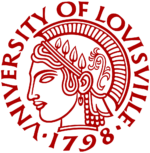
Founded in 1798, the University of Louisville is a public university with a total student body of 22,367. The University of Louisville offers bachelor’s degrees in 70 fields of study, master’s degrees in 78, and doctoral degrees in 22. This large school has a robust campus life, with strong athletics, a thriving Greek system and amenities like an art museum and planetarium on site. While many universities struggle with town-gown relationships, the University of Louisville has pioneered a dedicated community improvement program, and serves the state at large by offering free tuition to select low-income families. Research and academics are strong at the University of Louisville. The school boasts a high number of Fulbright and Rhodes Scholars, and the university’s School of Medicine has been at the forefront of a number of medical innovations, including the world’s first hand transplant and self-contained artificial heart transplant. Class sizes are generally small, with a student-faculty ratio of 16 to one. U.S. News and World Report ranks the University of Louisville 171th in National Universities.
At the University of Louisville, a master’s degree in computer science can be completed in two years, and requires 30 credit hours. Tuition is moderately priced, with each credit hour costing $714. The program is designed for individuals who have a background in technology but do not necessarily have an undergraduate degree in engineering or computer science. The course of study covers foundations, software, analytics, electives, and a project option. Classes are offered year-round and students may transfer up to 6 credit hours of graduate courses from other universities with departmental approval. Within the course of study, a wide range of options are available, with students selecting classes in each of 5 required content areas, such as Software and Analytics. The same faculty who teach on campus provide instruction in the virtual classroom. Classes are student-centered, and course content combines textbook or journal readings, video lectures, discussion boards, PowerPoint presentations, and more for a multi-modal learning experience. The program is well-regarded, and was recently ranked 9th in the nation by CollegeChoice.
- Homepage
- Number of Specializations: 1
- Estimated Tuition Per Credit Hour: $714
12.) Colorado Technical University

Colorado Technical University (CTU) is a for-profit university, which was originally founded in 1965 as a technical training school in Colorado Springs. CTU today offers undergraduate, graduate, and doctoral degrees, and serves about 26,000 students. The school began offering online degrees in 2000, and now over 92% of students take classes entirely online. The student body is largely made up of non-traditional learners, older students looking to advance or change careers. Accordingly, workplace skills are emphasized in all disciplines. CTU prides itself on providing industry-relevant education, and most students pursue degrees in business, management and technology.
An online master’s degree in computer science at Colorado Technical University can be completed in as little as 18 months. The program consists of 48 credit hours: 24 in core curriculum, 20 concentration credits and a 4-credit capstone project. Students can choose between four concentrations: computer systems security, data science, database systems and software engineering. Features available to distance learners include an online library, academic advising, real time tutoring, interactive orientation videos and networking and support through online student communities on social media sites. Classes offer a flexible learning interface which allows students to choose between audio, visual or exercise-based learning modules depending on their preferred learning style. The cost per credit is $585, making CTU’s online master’s degree in computer science an affordable option.
- Homepage
- Number of Specializations: 3
- Estimated Tuition Per Credit Hour: $585
13.) Capitol Technology University
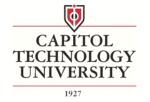
Founded in 1927 as a correspondence school, Capitol Technology University (CTU) is now a private, non-profit university located midway between Baltimore, Maryland, and Washington DC. The school serves a small student body of 843 in certificate, undergraduate, graduate programs, as well as a single doctoral program. The university is comprised of two colleges, the School of Business and Information Science and the School of Engineering and Computer Science. Class sizes are small, with a student to faculty ratio of just 12 to one. As the name suggests, engineering and technology are the institutional focus and the school boasts cutting-edge amenities and organizations such as a robotics lab, a space observation institute and cyber battle simulation laboratory.
The online master’s degree in computer science at CTU generally takes two years to complete, but an accelerated program is available which can be completed in as little as 18 months. Courses run in eight-week semesters and are offered in six terms throughout the year. A total of 30 credit hours are required, including 10 core classes and four electives in one of two areas of concentration: data science or software engineering. At $585 per credit hour, Capitol Technology University is an affordable option for online degree seekers. With its overall institutional emphasis on technology, CTU is well-positioned to deliver a high-quality education in computer science. The school has been designated by the National Security Agency and U.S. Department of Homeland Security as a Center of Academic Excellence in information assurance and cyber defense. As a former correspondence school, CTU also has a long history of delivering effective distance education, and this legacy carries over to the virtual campus, which is designed to replicate the personal attention delivered in the on-campus classroom. CTU’s online program employs a synchronous platform, in which students log in for lectures and discussions on a set schedule in order to communicate with the instructor and classmates in real time. Class sizes average 20 students, and emphasize dynamic learning through collaboration and interaction. Online students benefit from live tech support, real time tutoring, smartphone applications and live-streaming video.
- Homepage
- Number of Specializations: 2
- Estimated Tuition Per Credit Hour: $585
14.) North Carolina State University at Raleigh
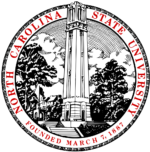
North Carolina State University at Raleigh (also known as NC State, or NCSU) is a public research university based in Raleigh, North Carolina, which was founded in 1887. With a student body of more than 34,000 students, it is the largest university in the Carolinas. Campus life is vibrant, with over 400 clubs and a thriving Greek life in which over 20% of students are engaged. NCSU not only boasts a considerable size but an impressive academic breadth as well. It is composed of 11 distinct schools, such as the College of Natural Resources, the College of Textiles and the and the College of Engineering. The school is traditionally recognized for outstanding studies in fields as diverse as statistics, engineering, agriculture, life sciences, textiles and design. Within these fields, students choose from a wide selection of programs, including 106 bachelor’s degrees, 104 master’s degrees and 62 doctoral degrees. The school enjoys an excellent reputation. U.S. News and World Report ranks NCSU 92nd in National Universities and 38th for Top Public Universities, and places it 62nd for Best Value. Kiplinger’s Personal Finance also recognized the school for its affordability, awarding it 11th in the nation for value in higher education.
Distinguished faculty are an outstanding feature of the online master’s degree program in computer science at North Carolina State University at Raleigh, with 40 tenure-track professors, a variety of accomplished practitioners serving as adjunct faculty, and a high number of professors holding instructional awards and distinctions such as the National Science Foundation’s prestigious CAREER Award. A total of 31 credit hours are required for the degree, at a cost of $1,007 per credit. A minimum of three core classes must be chosen from a selection of 14 foundation courses in the areas of either systems or theory, as well as three graduate level engineering, computer science, mathematics, or statistics classes. No thesis, capstone project or final examination is required for graduation. Classes are offered on a Spring/Fall semester basis, with most students taking one to two at a time and completing the program within two years. Courses are delivered in a streaming video format and, in most cases, are simply recorded versions of on-campus courses. As such, online classes have exactly the same content and requirements as those offered on campus.
- Homepage
- Number of Specializations: 1
- Estimated Tuition Per Credit Hour: $1007
15.) Lewis University

Lewis University was founded in 1932 in Romeoville, Illinois as an aviation school, and continues to maintain a well-regarded and innovative Department of Aviation and Transportation Studies. The school is a private, non-profit, Roman Catholic university and is home to 6,800 graduate and undergraduate students. Class sizes are small, with the school maintaining a student to faculty ratio of 13 to one. Lewis University offers 80 undergraduate degrees, 22 graduate degrees, and several accelerated programs for working adults. The university is organized into five departments: the College of Arts and Sciences, the College of Business, the College of Education, the College of Continuing Education and the College of Nursing and Health Professions. The most popular majors include nursing, criminal justice, business and aviation. In keeping with the school’s religious tradition, global awareness and social engagement are emphasized in all disciplines. Lewis University is ranked by U.S. News and World Report as 24th in Regional Universities Midwest, and 37th in Best Value Schools.
The online master’s program in computer science at Lewis University requires the completion of ten courses, totaling 30 credits. The curriculum allows for a high degree of personalization within a broad range of offerings. Students can choose from five selections within each of the core curriculum’s three content areas, and half of the required credits are chosen from a broad selection of elective courses. In addition, students may choose to pursue one of three optional concentrations: cyber security, intelligence systems, or software development. A capstone project is required for all degree candidates, consisting of a publication-ready research document or technology-based project conducted for an external organization. Online students receive guidance throughout their course of study from a departmental advisor. The entire program takes two years to complete, and tuition is priced at $1,088 per credit.
- Homepage
- Number of Specializations: 3
- Estimated Tuition Per Credit Hour: $795
16.) Purdue University

Purdue University is a public research university, located in West Lafayette, Indiana and is the main campus of the five campus Purdue University system. The university is remarkable for its great age, size and prestige. The school was founded in 1869, and is home to some 40,451 students. Purdue University offers more than 200 undergraduate majors, over 70 master’s and doctoral degrees, and professional degrees in pharmacy and veterinary medicine. Academics are rigorous and research is robust. The engineering department is historically strong, while the aviation and aerospace program is one of the most competitive and prestigious in the world, and is responsible for a number of innovations including the first four-year bachelor’s degree in aviation. Purdue’s English department also achieved prominence for the creation of the first Online Writing Lab (OWL), and Purdue OWL remains the most popular online style, grammar and citation guide in academia. With over 400 research laboratories, the school is among those with the highest research activity in the nation, according to the Carnegie Foundation. U.S. News and World Report ranks Purdue University 60th in National Universities, 90th in Best Global Universities, 20th in Top Public Schools and 9th in Most Innovative Schools.
In 1962, Purdue University established the very first department of computer science in the United States. Today, the school’s online master’s degree in computer science is recognized for its outstanding faculty, cutting-edge research opportunities and career outlook. This two-year, 30-credit program is open to students with an undergraduate degree in computer science or engineering. Students may elect to enroll in 10 of the 15 available 3-credit courses or complete 8 such courses in addition to a thesis. An academic advisor works with each student to develop a personalized plan of study. Course content is primarily delivered asynchronously through recorded video, with some courses also including streaming video. Online classes consist of the same lectures delivered on campus by the same faculty, most of whom have been awarded professional awards or distinctions. Students also benefit from internship opportunities such as the GoBroiler Internship Program, which specializes in cutting edge computing systems projects. The cost of tuition is $1,088 per credit hour. A number of Fortune 500 companies and tech industry leaders, such as Boeing, Intel, Yahoo and General Motors have become corporate partners, offering fellowships and technical talks, and actively recruiting graduates.
- Homepage
- Number of Specializations: 1
- Estimated Tuition Per Credit Hour: $1088
17.) James Madison University
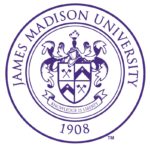
James Madison University (also known simply as Madison or JMU) is a public research university located in Harrisonburg, in the heart of Virginia’s Shenandoah Valley. Founded in 1908 as a women’s technical or junior college, Madison is now a coeducational research institution serving a total of 20,858 students. The university is organized into seven schools by discipline, including the College of Arts and Letters, the College of Health and Behavioral Sciences and the College of Education. Currently, James Madison University offers 115 degree programs on the bachelor’s, master’s, educational specialist, and doctoral levels. Campus-based education is augmented by a multitude of learning experiences outside the classroom, including research opportunities, internships and a robust study abroad program, with sites in Belgium, China, Spain and more. For a large university, Madison maintains relatively small class sizes, with a student to faculty ratio of 16 to one. Popular majors include health professions, business, education and social sciences. The career outlook for graduates is bright; 81% find employment within 6 month of completing their degree. Campus life is vibrant, with some 350 student organizations and on-campus amenities like a planetarium, scuba diving club and a strong Greek system. The school has earned an outstanding reputation. James Madison University’s ranking in U.S. News and World Report is 8th in Regional Universities South, 2nd in Top Public Schools and 3rd in Most Innovative Schools.
James Madison University offers an online master’s degree in Computer Science: Information Security. Madison is one of only seven original National Centers of Academic Excellence in Information Assurance/Cyber Defense, designated by the Department of Homeland Security and the National Security Agency. The program’s focus is highly technical, highly interactive, and one of the most comprehensive graduate programs in the country. Students can choose specializations in digital forensics, malware analysis, incident response, and mobile forensics. The course of study, which totals 33 credits, takes five semesters and one summer session to complete. Tuition is reasonably priced at $774 per credit hour. All courses are delivered asynchronously, allowing students to log in and work at their convenience rather than on a set schedule. The program is cohort-based, with courses offered in a prescribed sequence, and all students in the cohort take the same two courses each semester. Frequent discussions and group projects encourage collaboration with other members of the cohort. The information security department also runs a sophisticated remote-access cyber security lab, in which students simulate cyber attacks and create realistic functional defenses.
- Homepage
- Number of Specializations: 1
- Estimated Tuition Per Credit Hour: $774
18.) Columbus State University

Columbus State University is a public university which is based in Columbus, Georgia, with a satellite campus in nearby Fort Benning. The school was launched as a junior college in a hosiery mill in 1958 with less than 300 students in attendance. Today, Columbus State serves 8,307 students and offers undergraduate, graduate and doctorate programs in more than ninety academic disciplines. The school is recognized for its business department and leadership programs, and the robust performing arts department boasts the only drama teacher certification program in the state. A variety of on-campus learning resources include an environmental learning center with live animal displays, the Coca-Cola Space Science Center, a state-of-the-art performing arts facility, and an art and theater complex jointly administrated by the school and surrounding city. In addition to health professions and business, a striking number of students choose to major in service positions such as education, law enforcement, homeland security and firefighting. U.S. News and World Report ranks the school 105th in Regional Universities South and 46th in Top Public Schools.
Columbus State University offers a fully online master’s degree in applied computer science with three concentrations: information assurance, modeling and simulation, and software development. While most choose a specialization, students may also design a program of study without a concentration. The degree can be earned in two years and requires 36 credit hours, at a cost of $801 per credit. The curriculum consists of a four-course core, required courses within a chosen concentration, concentration-specific electives (including a thesis option) and a comprehensive exit examination. Hands-on experience and real-world application are stressed throughout the course of study. With technology and computing playing a large role in the educational experience across disciplines, students in the computer science department of Columbus State play a large role in designing and managing the technology used by the university itself. The National Security Agency and the Department of Homeland Security have recently designated Columbus State University a National Center of Academic Excellence in Cyber Defense Education for contributing to advancements in the defense of national information infrastructure.
The school’s online program was awarded first place for Top Online Master’s in Computer Science by GoGrad and ranked 3rd on ComputerScienceOnline.com.
- Homepage
- Number of Specializations: 4
- Estimated Tuition Per Credit Hour: $801
19.) Syracuse University
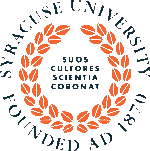
Founded in 1870, Syracuse University is a private research university based in Syracuse, New York. It was one of the first universities in America to admit women, and to launch a school of information management. The institution is highly prestigious, stringently selective in its admissions, and extremely rigorous in its research activity, and has brought about such innovations as the development of an oral insulin treatment and the discovery of gravitational waves. A total of 21,267 students are enrolled, and the school maintains a low student to faculty ratio of just 16 to one. Syracuse is organized into 13 highly regarded schools and colleges and over 200 undergraduate and 200 graduate degrees and certificates are offered, along with many interdisciplinary options. Since 1911, the university has offered multiple study abroad programs. Today, the school has joint programs with universities in over 40 countries and operates eight international centers in such far-flung locations as Hong Kong, Santiago and Istanbul. U.S. News & World Report ranks Syracuse 60th in National Universities and 44th in Best Value Schools.
The online master’s degree in computer science from Syracuse University is highly flexible, comprehensive and efficient. The thirty credit hour curriculum places an emphasis on mathematical evaluation, and affords the opportunity to specialize in such areas as security, artificial intelligence, computer architecture, and advanced programming. In addition to the 12-credit core, a variety of elective courses allows students to tailor their curriculum to their personal career goals, and both thesis and non-thesis options are available. The degree generally takes just 15 months to complete, although a one-year intensive option is also available, and tuition is priced at $1,443 per credit. Personal attention, collaboration and critical thinking are central to the format of online course content delivery. Classes consist of synchronous, weekly live discussions conducted via webcam. Students exchange documents, collaborate, and discuss class topics with peers and professors, and all content is recorded and archived. Coursework consists of interactive videos, self-paced recorded lectures, group projects and hands-on learning exercises. Extensive student support services are offered to online students, including not only the standard writing and advising resources, but also networking, career services, webinars and online social communities.
- Homepage
- Number of Specializations: 1
- Estimated Tuition Per Credit Hour: $1443
20.) Drexel University

Drexel University is a private research university with three campuses in Philadelphia. It was founded in 1891 and is home to some 26,359 students. The school offers more than 70 undergraduate degrees and over 100 master’s, doctoral, and professional degrees. Entrepreneurship, innovation and interdisciplinary collaboration are integral to the educational experience at Drexel. The university’s school of entrepreneurship was the first degree-granting school of its kind in the nation, and serves as an incubator for student-developed startups, while maintaining partnerships with large and small companies. Drexel offers students a unique oportunity for on-the-job learning through its unique cooperative education program (co-op), which allows graduates and undergraduates to gain 18 months of full-time, paid experience in a field related to their major. An innovative service-learning initiative encourages students to develop novel approaches to solving social challenges and contribute to community improvements in the surrounding areas of Philadelphia. Drexel is organized into some 20 schools and colleges, including highly-regarded engineering and business departments, the nation’s largest private medical school and newest law school. The university has over 30 highly active research departments spread across its many schools of discipline. U.S. News & World Report ranks Drexel 96th in National Universities and 14th in the Most Innovative Schools.
As an institution which prides itself on innovation and the advancement of technology, Drexel University is well-positioned to offer a strong online master’s program in computer science. The school was the first in the nation to require students to own computers and the first to launch an entirely wireless campus. The university’s online school recently received the Sloan-C award for institution-wide excellence in online education and the 2008 United States Distance Learning Association’s Best Practices Award. Online classes at Drexel involve multimedia recorded lectures and periodic live discussions conducted via webcam, and assignments may consist of individual, group or laboratory work. Distance learners have access to not only the standard writing and advising resources provided by most online schools, but also extensive services in networking, career advising and global internship opportunities. The online master’s in computer science at Drexel consists of a 45-credit sequence, organized into four 10-week quarters per year (as opposed to the traditional two semesters). This approach, which allows students to complete more courses in a shorter time period, renders each quarter-credit equivalent to 1.5 semester-credits. Each credit hour costs $1,192, and the program typically takes two years to complete. Students enjoy a broad selection in their curriculum, choosing their core courses from six foundation categories with a selection of six or more classes within each category, and rounding out their course of study with a wide selection of electives according to their interests and career goals. Some electives may be chosen from other disciplines, such as electrical engineering and information science, and both thesis and non-thesis degree options are available.
- Homepage
- Number of Specializations: 1
- Estimated Tuition Per Credit Hour: $1192
21) Clarkson University

Founded in 1896, Clarkson University has a total enrollment of about 4,400, including 1,000 graduate students. US News ranks Clarkson as one of the best universities in the country, including 36th for overall value and several top-ranked online programs. With a 14:1 student-to-faculty ratio, Clarkson combines intimate, personalized instruction with opportunities for collaborative learning. Over 40% of classes have fewer than 20 students.
Clarkson’s online MS in Computer Science consists of 30 credits, including studies in Operating Systems, Compiler Construction, Software Design and Development, Computer Graphics, and Software Design and Analysis. Students complete electives to tailor the degree to areas of professional interest, and an advised research thesis provides students with hands-on experience. (Students must orally defend their thesis in order to graduate.) All courses are designed for maximum flexibility to accommodate a variety of adult learners, working professionals, and non-traditional students. Applicants should have earned a computer science-related undergraduate degree.
- Homepage
- Tuition Per Credit: $1,388
22.) East Carolina University
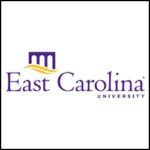
East Carolina University was founded in 1907 in Greenville, North Carolina as a teacher training school, and has since become a large, well-regarded public research university. With a diverse student body of over 28,500, the university is the third-largest in North Carolina. The university is organized into twelve graduate and undergraduate schools, grouped into four campuses by discipline. Over 175 graduate and undergraduate degrees, along with 79 certificates, are offered in fields such as business and education, as well as medicine and dentistry. Class sizes are relatively small for a large university, with a student to faculty ratio of 18 to one. Regional and global engagement are central to education at East Carolina. The university’s Global Classroom uses a video interface to conduct cultural exchanges with students in 30 countries. The School of Dentistry is launching a program to deliver student-administered dental care to underserved rural communities. Through research and field opportunities, students address real-world challenges, such as improving public health in African and rural American communities. The school has also developed such innovations as the standard procedure for gastric bypass surgery and SpeechEasy, a wearable device which assists stutterers in improving speech fluency. U.S. News and World Report ranks East Carolina University 210th in National Universities and 118th in Top Public Schools.
Computer Science Online awarded to East Carolina University 2nd place in the nation for Best Online Master’s Computer Science, and GetEducated ranked the program 2nd for Top Affordable online degrees in this category. The degree program involves rigorous academics and comprehensive coursework, delivered with personal attention from instructors. The course of study emphasizes software design as well as programming languages, operating systems, hardware, database environments and software engineering tools. Graduates are frequently recruited by leaders in technology and industry. The program consists of 30 credit hours, including four 3-credit core courses, and 18 credits chosen from among a selection of electives. Students are required to present a research seminar during their course of study, pass a comprehensive final examination and complete a final thesis or research project. The faculty, curriculum and examinations in the virtual classroom are identical to those found on campus. In addition to recorded lectures, discussion boards, live chats and group assignments are incorporated into lesson plans. Tuition is priced at $876 per credit hour, and most graduates take two years to complete the degree.
- Homepage
- Number of Specializations: 1
- Estimated Tuition Per Credit Hour: $876
23.) Franklin University
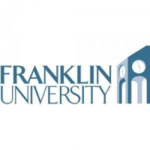
Founded in 1902, Franklin University is a private, nonprofit university created with the goal of educating working adults. The school is based in Columbus, Ohio, and has four additional campuses in Ohio and Indiana. Current enrollment stands at 7,942, with an average student age of 35. Franklin students can pursue approximately 30 bachelor’s degree programs and about five master’s degree programs in the college of arts, science and technology, the college of health and public administration and the college of business. Every course taught at Franklin University is also available online. Recognizing the challenges that working adults face in completing degree programs, the university operates a student success coaching program. Professionals working in the industry of a student’s area of study are paired in one-to-one relationships in order to provide academic, personal and professional mentoring and guidance on a monthly basis.
The online master’s degree in computer science at Franklin University was expressly designed with the priorities of large companies in mind, and is continually reviewed and adapted by an advisory board largely representing Fortune 500 firms. This input assures that the program content stays relevant to the ever-evolving needs of major companies, and that graduates are prepared to start their careers or advance existing ones with in-demand job skills. All classes are taught by practicing professionals in the field of computer science, who are able to draw on their experience and expertise to connect classroom skills to workplace problem-solving. Content areas covered include the use of leading architectural tools, such as UML and Patterns, algorithm analysis, distributed systems, acceptance testing, and database design using Oracle and SQL Server. The course of study can be completed in as little as 20 months, with courses running on a trimester system and applications accepted on a rolling basis. A total of 44 credit hours are required, with a prescribed sequence of study followed by one elective class, internship or independent study. A capstone project is required for graduation. The cost of tuition is an affordable $685 per credit hour. Extensive online support services are available, including free real-time tutoring, test prep workshops, career counseling and coaching.
- Homepage
- Number of Specializations: 1
- Estimated Tuition Per Credit Hour: $685
24.) Hofstra University

Hofstra University is a private, non-profit research university located in the villiage of Hempstead, in Long Island, New York. The school originated in 1935 as a branch of New York University, and is now home to 10,870 graduate, undergraduate and doctoral students. Hofstra is divided into 10 schools, including a school of engineering, a law school and a medical school. The university has gained attention for hosting the past three Presidential Debates, as well as a number of prominent Presidential conferences. Selective admissions, rigorous academics, and accomplished faculty make Hofstra a prestigious institution, which has earned an outstanding reputation and high rankings. U.S. News and World Report ranked Hofstra 133rd in National Universities, as well as 63rd in Best Value. Of the full-time faculty at Hofstra, 92% hold the highest degree in their fields, and many have earned awards such as Fulbright and Guggenheim Fellowships, National Science Foundation and National Endowment for the Humanities awards. Class sizes are very small, with a faculty to student ratio of just 13 to one, allowing for personal attention to each student. Abundant academic resources include a newsroom, trading room, robotics lab, bioengineering lab, observatory, six theaters and two museums. Outside of the classroom, students can take advantage of numerous opportunities for experiential learning, including internships, fellowships, research, study abroad, as well as cultural and service programs.
The online master’s in computer science offered by Hofstra University offers the same prestige, academic rigor and an abundance of learning resources as its parent institution in a convenient, accessible format. The 30 hour sequence takes two years to complete, and students pay $1,240 per credit hour. Emphasis is placed on hands-on experiences and in-depth research explorations. Students learn by solving complex and realistic computing challenges such as building mobile applications for cell phones, hacking and countering security threats, creating corporate privacy policies, and trackingmalware. The core curriculum provides a strong foundation in computer science fundamentals, covering algorithms, programming languages, operating systems and more. Electives are offered in a variety of specialized and emerging fields, and students can choose a concentration in web engineering or networking and security. Up to two electives can consist of independent study or research conducted with the close supervision of a faculty expert. The program concludes with a capstone project or master’s thesis. All 10 computer science faculty hold PhDs and are actively involved in research in a broad range of areas of expertise, including data mining, artificial intelligence and biomedical engineering. Hofstra University provides excellent career advising and assistance, along with outstanding networking opportunities. Graduates of this prestigious program frequently attain leadership roles in sought-after companies.
- Homepage
- Number of Specializations: 1
- Estimated Tuition Per Credit Hour: $1240
25) New Jersey Institute of Technology

New Jersey Institute of Technology, founded in 1881, has a total enrollment of about 11,300, 300 of which are graduate students. A member of several prestigious associations, New Jersey Tech ranks highly on lists by Washington Monthly, Princeton Review, US News, and Business Insider, which ranked it among America’s most underrated colleges. US News has highlighted its veteran services and appeal to high school counselors. The 17:1 student-to-faculty ratio balances a collaborative learning atmosphere with individualized, tailored instruction that places the student first. Over a third of classes have fewer than 20 students and just 6% have 50.
NJIT offers a 30-credit online MS in Computer Science designed for working professionals that want to strengthen their theoretical and applied CS knowledge, as well as increase aptitude for algorithms, programming, logical reasoning, and complex computing systems. Core courses include Data Structures and Algorithms, Operating System Design, Data Management System Design, and Internet and Higher-Layer Protocols. From there, students have the opportunity to customize the degree to areas of professional interest through specialization offerings in Database and Data Mining, Networking, and Cybersecurity. Non-computing STEM graduates can enroll in NJIT’s bridge program to fast-track fundamental concepts and skills, consisting of four courses in programming languages, operating systems, and other subjects.
- Homepage
- Tuition Per Credit: $1,541
26) University of Bridgeport
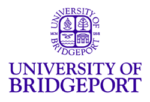
Founded in 1927, University of Bridgeport has a total enrollment of about 5,700, divided evenly between undergraduate and graduate students. US News ranks Bridgeport among the best schools in the region, and at least four online programs are ranked among the best in the country. With a 17:1 student-to-faculty ratio, the university balances small, intimate courses with collaborative learning and a vibrant learning environment. Two-thirds of classes have fewer than 20 students.
Bridgeport’s online MS in Computer Science includes coursework in Object-Oriented Programming Using C++, Analysis of Algorithms, Operating Systems, Advanced Database, and Data and Computer Communication, as well as a colloquium in Engineering and a master’s projects. Electives are built into the program to help students tailor the degree, and include classes such as Parallel and Distributed Processing, Network Security, Mobile and Pervasive Computing, and Smartphone App Development. All courses are designed to accommodate a variety of working professionals and adult learners, and students can enter the program in either January, June or August. The average degree completion time is two years.
- Homepage
- Tuition Per Credit: $941
27) University of West Florida

University of West Florida, founded in 1963, has a total enrollment of 13,000. Princeton Review and US News each rank UWF among the top schools in the region, and Forbes has placed it on lists for “America’s Best Colleges” and “Best Buy Colleges.” The 22:1 student-to-faculty ratio supports a vibrant, collaborative learning environment while maintaining personalized instruction from expert faculty. Over a third of classes have fewer than 20 students and just 11% have 50.
UWF offers an online Master’s in Computer Science that includes three specializations: 1) Computer Science: covers networks and communication devices, theory of computation, analysis of algorithms, programming languages, and operating systems; 2) Database Systems: covers design, implementation, and administration of large databases as well as programming and SQL; 3) Software Engineering: emphasizes software development, including specification, analysis, design, implementation, verification, validation, and project management. All online courses are designed for maximum flexibility, and students have access to a wide variety of resources such as tutoring, professional development, and more. Average degree completion time is approximately two years.
- Homepage
- Tuition Per Credit: $1,044
28) Georgia Southern University

Founded in 1906, Georgia Southern is a public university with a total enrollment of 20,500, including students from 48 states and 89 countries worldwide. Classified as a doctoral/research institution by the Carnegie Foundation, GSU’s 22:1 student-to-faculty ratio helps to balance the vibrant, dynamic atmosphere of a large institution with the tailored, expert instruction of a smaller school. A quarter of classes have fewer than 20 students and only 10 percent have 49 or more. In particular, GSU emphasizes academic distinction, excellent teaching, research, and student success.
Georgia Southern’s online MS in Computer Science consists of 30 credits and can be completed in as little as five semesters. In addition to rigorous core coursework in databases, artificial intelligence and web systems, students have the opportunity to pursue specializations in data mining, data warehousing, and
distributed database systems. All courses are designed for maximum flexibility to fit the schedules of adult learners, working professionals, and non-traditional students, and a hybrid delivery option allows students to complete online as well as on-site requirements. For those interested, Georgia State also offers graduate certificates in Broadband and Mobile Systems, Network and Computer Security, Game Programming, and Software Engineering.
- Homepage
- Tuition Per Credit: $410
29) University of Idaho

Founded in 1899, University of Idaho has a total enrollment of 11,800, including about 2,000 graduate students. US News ranks Idaho on best-of lists for public schools, national universities, and high school counselor rankings, and the university’s online programs are gaining increased recognition. With a 16:1 student-to-faculty ratio, Idaho combines personalized instruction from experts as well as collaborative learning in a tight-knit educational community. Over half of classes have fewer than 20 students, and less than 10% have 49 or more.
University of Idaho’s online MS in Computer Science features 30 required credits, including coursework in areas like Compiler Design, Advanced Computer Architecture, Evolutionary Computation, Network Security, Fault Tolerant Systems, Artificial Intelligence, and Programming Language Theory. All online delivery is aimed to accommodate a variety of learners, and include live streaming classes as well as pre-recorded lectures. Via the Blackboard learning platform, students have access to discussion boards, course material, 24/7 tech support, live chats, and more. Most students complete the degree in two years.
- Homepage
- Tuition Per Credit: $1,555
30) Stevens Institute of Technology

Founded in 1870, Stevens Institute of Technology is a private, research-intensive school with a total enrollment of 6,300, evenly divided between undergraduate and graduate students. US News ranks Stevens Tech among the best value schools in the country, a top 70 national university, and 75th on high school counselor rankings. In particular, the university is known for its engineering, science, and management programs, as well as entrepreneurial initiatives. The 9:1 student-to-faculty ratio fosters an intimate educational community, and 40% percent of classes have fewer than 20 students and only 9 percent have 50.
The Stevens online MS in Computer Science consists of 20 courses, covering a wide range of areas. Example core coursework includes Data Mining and Knowledge Management, TCP/IP Networking, Enterprise and Cloud Computing, Human Computer Interaction, Web Programming, Advanced Algorithm Design and Implementation, and Privacy in a Networked World. From there, students have the ability customize the degree through numerous focus areas: Gaming and Simulation, Mobile Systems, Software Development, Visual Computing and Information Extraction, and Web Application Development, among others. The program is highly flexible to fit different schedule demands, and a research thesis track is available for those interested. Related master’s programs include Cybersecurity and Enterprise and Cloud Computing.
- Homepage
- Tuition Per Credit: $1,501
